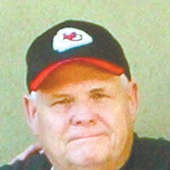Kansas Woodstock
Over Labor Day Weekend, Sept. 4-7, 1970, there was a huge rock festival held about 45 miles from here, southeast of Pittsburg, Kan. I didn’t attend because I was living and working in Pomona, Calif., at the time but I was quite familiar with the background, culture and sentiments that led directly to this event.
I was reminded of this and similar gatherings, while watching the recent PBS series by Ken Burns, titled “The Viet Nam War.” This was a time in our country’s history that has impacted our thoughts and the way we live still today.
The history of that time saw dramatic changes in just a short period. When I arrived on campus at Pitt State in the fall of ‘67, the student population was bursting at the seams. This was during the height of the Vietnam War period and one of the ways to avoid the draft, was to be enrolled and passing at least 12 college hours each semester. If you followed this schedule, you had about a four-year reprieve from the draft.
Pitt State was a “Land Grant” college. The Morrill Act of 1862 gave states federal lands to sell and this money was allocated for the building of universities. One provision that the Federal Statute required was that each university include mandatory ROTC instruction for two years. (If a student desired to complete the last two years of the program, they signed a contract with the U.S. Army. Upon graduation they were immediately inducted into the full Army as a 2nd Lieutenant. I knew of two former Nevada High School graduates who completed this program, Tom Pettibon and Lynn Brown.)
All able bodied male student at Pitt during their first two years had to go to regular classes and drills for the Reserved Officer Training Corp. It was not always popular with many students, and as the war dragged on it became less favored.
In the spring of each year, the ROTC Department hosted a formal prom type event, called the “Military Ball.” During my first year, we were told it was mandatory to attend.
When I arrived on campus most of the male students had medium length hair. Few if any had ever been around anybody who possessed marijuana or even smoked pot. I always told people in later years, you could count the number of pot smokers in 67 on one hand. Two years later you could just about count the number on one hand who had not at least tried it once.
The anti war culture and movies like “Easy Rider” in 1969 elicited a huge transformation in dress, activities, music and drugs. If ROTC was unpopular before, by the spring of 70 it was downright despised.
The foreshadowing of the big concert to follow in September of ‘70 was the first Peach Ball the previous spring. Although we were told we might be flunked in our ROTC class hundreds decided to forego the Military Ball and instead attend to the first ever Peace Ball.
American History is filled with such transformational periods and events. Of course our American Revolution heads that list. It gives us all a sense that we are part of a country that is free from any other nation’s government.
The Civil War also had a huge impact upon our views. The questions of race and state versus federal control are still issues that are battled over by our citizens and our government.
World War II and the atomic bomb that ushered it to an end created a “Cold War” mentality for our country. My generation was raised within the beliefs of that Cold War Era. Communism was portrayed as the great enemy and we were taught the “domino theory” (that when one country fell to communism, it followed that adjacent countries would tip as well). That theory led our country rightly or wrongly, to attempt to prevent the communists from taking over South Vietnam.
That 60’s generation had been raised to believe in the total infallibility of our government and our military. In movies, books and television shows we watched the heroes of our past military conflicts. Even our comic books like Sgt. Rock and Sgt. Fury glorified the American serviceman. The protracted conflict in Vietnam forever changed that viewpoint.
The divisions among our citizens were profound. The “Greatest Generation” that had fought in the Second World War, often thought that this Vietnam generation was unpatriotic. It created a rift that could be seen at all levels of our society, even within families.
This rift was broadened in the spring of 1970 following the event that became known as the Kent State Massacre. Nothing in our history displays the animosity that resulted from that event more than the song by Crosby, Stills, Nash, and Young, titled “Ohio.” — ... “This simmer I hear the drumming, Four dead in Ohio.”
Thus the scene, the cause, and the music genre were set for the small college town of Pittsburg, Kan. So began the “Peace Ball” concert, which was later to be referred to as “The Kansas Woodstock.” An estimated 10,000 fans gathered for three days to protest and hear 25 bands perform.
Remembering those days of protest and animosity between the generations is difficult for many in current times. The same Woodstock generation has become the senior citizens of today. They tend to be much more like their parents in their outlooks and politics.
That is in a way the best part of being American. We evolve and change over the years but we always reserve the right to protest and seek change.
Isn’t it amazing that the same generation that violently protested the Vietnam War is now so very outraged by the current National Anthem protests? The youth of the 60s didn’t think anyone was listening to their concerns. Perhaps instead of anger, we need some new protest music. Where are you Crosby, Stills, Nash, and Young?

